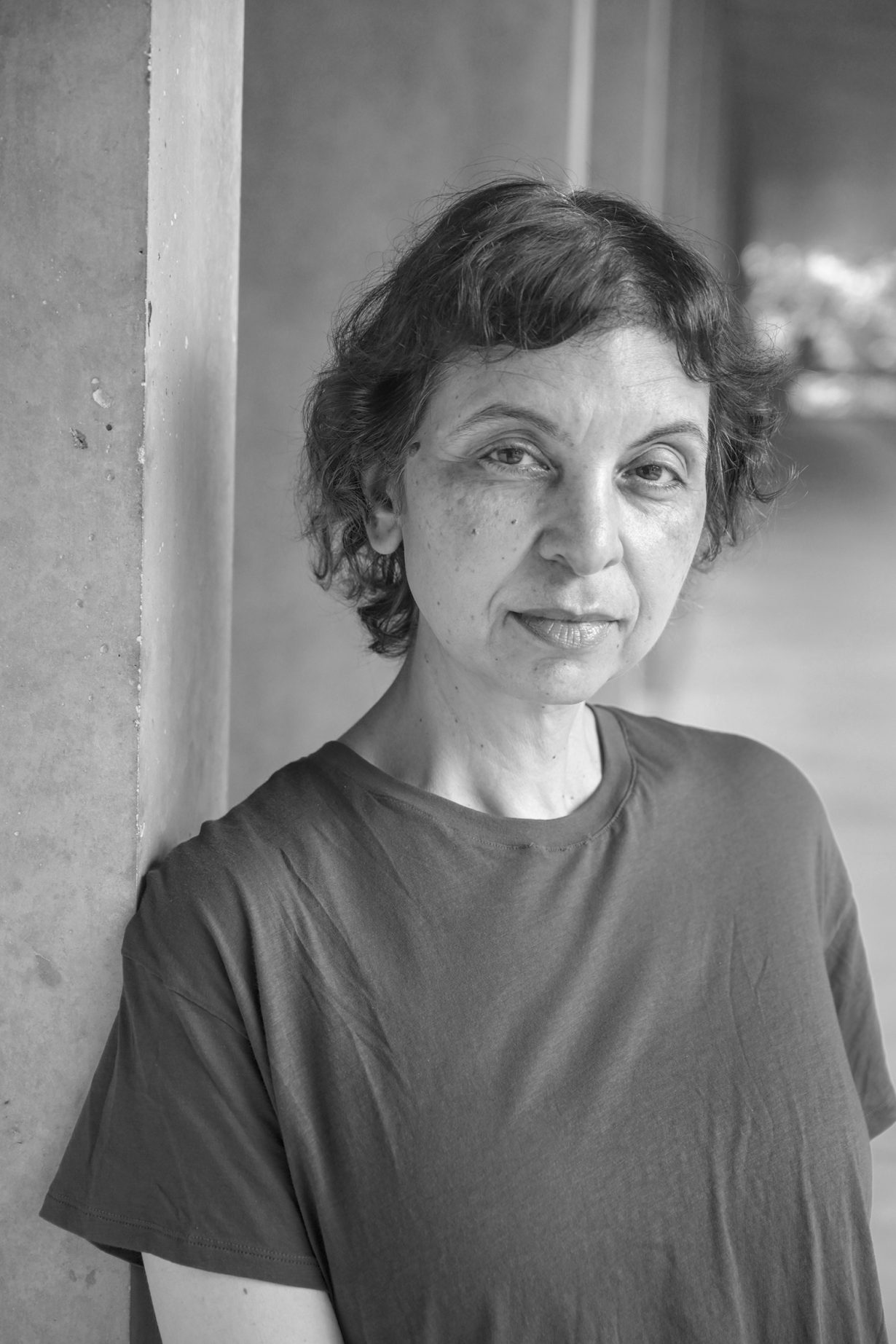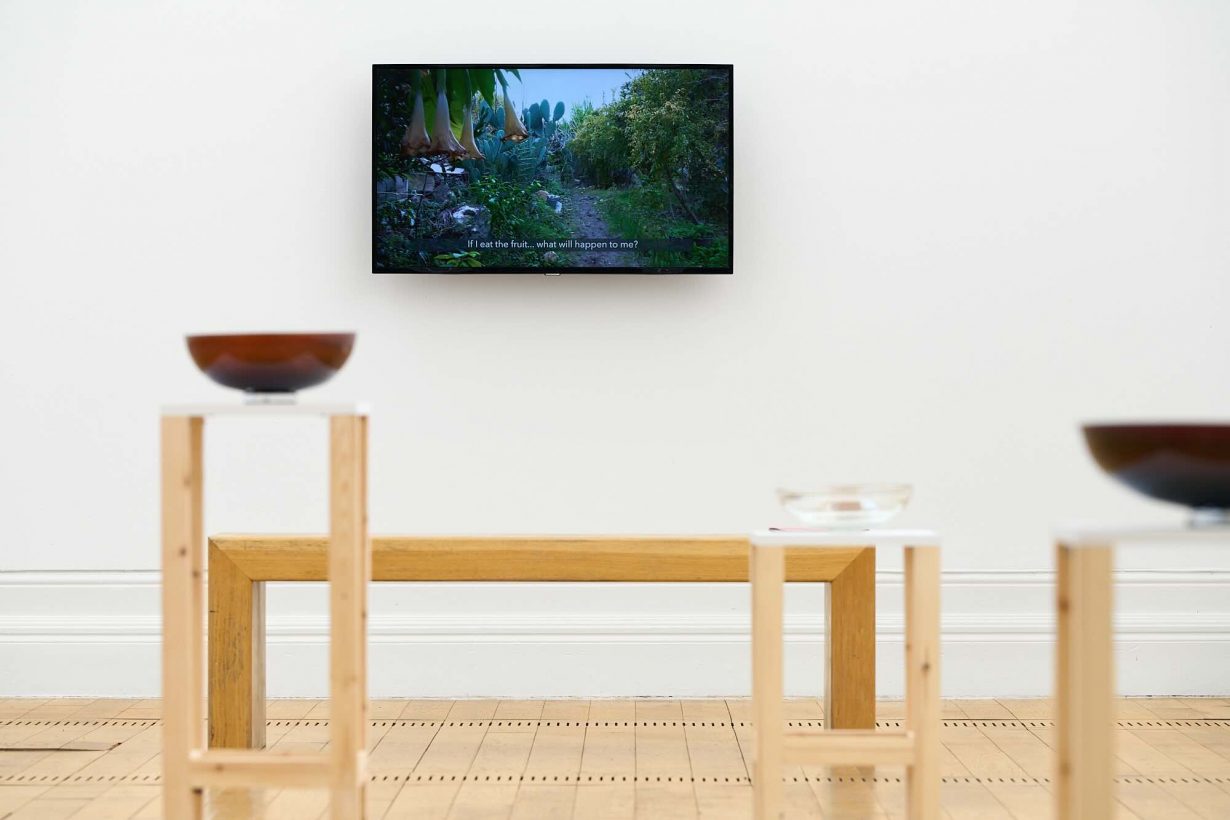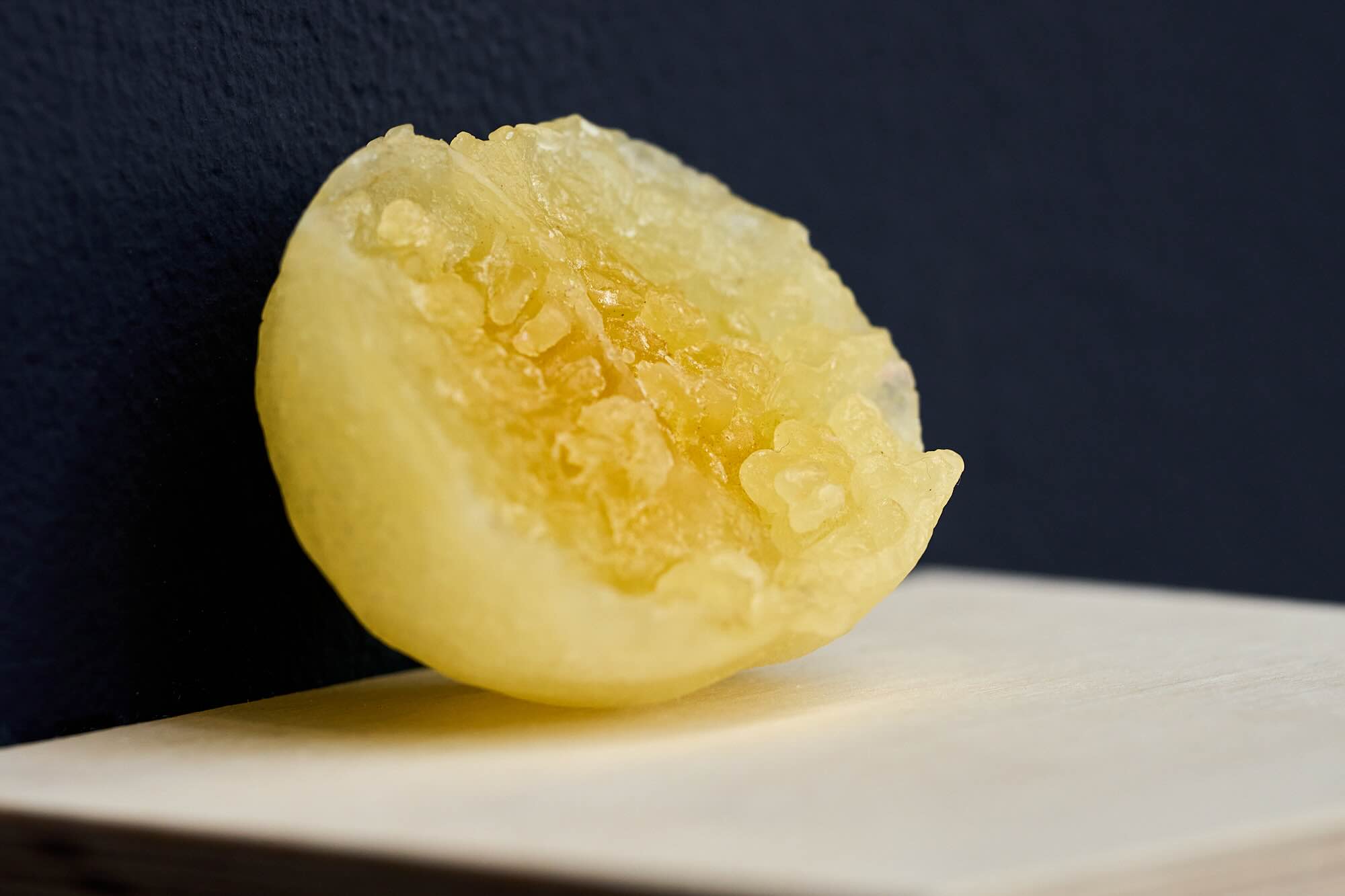To mark the opening of the eleventh edition of the UK’s leading biennial and international contemporary art prize, ArtReview partners with Artes Mundi and catches up with the six international artists presenting their work across Wales from 24 October 2025 to 1 March 2026.
Anchored by a group exhibition at National Museum Cardiff that foregrounds ambitious new commissions and major loans, Artes Mundi 11 invites thematic resonances between practices shaped by displacement, memory and the environmental and emotional costs of political conflict, expanded through solo presentations at venues including Aberystwyth Arts Centre, Chapter in Cardiff, Glynn Vivian Art Gallery in Swansea and Mostyn in Llandudno. Platforming global perspectives on the human condition, Artes Mundi 11 continues the organisation’s commitment to socially engaged art. Among this year’s artists is Jumana Emil Abboud, who draws on folklore, mythmaking and waterlore to explore how stories persist beyond dispossession, weaving together drawing, performance and collaborative water divining workshops into acts of continuity and care. Abboud has recently presented work at Aomori Contemporary Art Centre (2024), Cample Line (2023), Jameel Arts Centre (2023), Seoul Museum of Art – SeMA (2023) and Tavros Athens (2022), and has participated in several international biennales including in Lyon, Sharjah, Venice, Istanbul and Sydney.

ArtReview How do you help audiences connect with stories that come from your own background or community?
Jumana Emil Abboud My intention is for my work to create conditions for shared experience. While I speak from the place I know and love – Palestine – and from its folktales and water rituals of days long gone, I also speak of one’s right to water and to story. These are universal rights. Through water, place, heritage, memory and imagination, I ground the specific in the shared. My response to the settler-colonial dispossession of Palestinian heritage becomes a practice of re-storying – an act of reanimating what has been silenced through collective imagination and material encounter. The through-line in my practice – story as shared ground, water as a connective medium, and enchantment as an ethics of making – creates the space for audiences to become co-makers, participating in this act of reimagining heritage and relation rather than remaining passive viewers. In this shared space, listening, remembering and imagining together open new continuities between displacement and belonging, vulnerability and renewal.
AR When you work with shared or inherited stories, how do you decide what to include and what to leave open?
JEA When working with shared or inherited stories, I begin by seeking water – both as source and as method. I look for the folktales and community practices that once deepened relations between people, land and all living things. What I choose to include are the traces that still carry life, that invite continuity rather than nostalgia. In workshops and story-making collaborations, these stories remain open: locals are invited to interweave their own memories and waters with those from Palestinian sites, allowing new geographies to emerge. Through this process, inherited stories are not fixed to the past but become living grounds of connection and renewal.

AR What would you like visitors to experience after spending time with your work?
JEA After spending time with my work, I hope visitors leave with a sense that water and story are not privileges but rights – and that Palestinians, like all people, are entitled to both. I want them to feel that culture is not an artefact of the past but a living gift that moves between us, shaping how we relate to one another and to place. I also hope they sense a quiet magic – one that reminds them of the beauty and wisdom carried in folktales, not as something romanticised, but as a way of seeing the world as alive, despite the atrocities of wars. Through these encounters, I hope visitors recognise their own proximity to the stories of others, sensing the ways in which all lives are connected.
AR Your water divining workshops gather stories about wells and springs, linking local folklore with wider experiences of displacement. What have you discovered about how these North Wales landscapes speak to this tradition, compared to places you’ve worked before?
JEA In the North Wales iteration of the Water Diviners, I will connect Wales with Palestine through stories of myth and the present day. With local participants, we’ll visit wells and springs – some flowing, others long dry – to listen to the landscapes and to one another. Instead of treating these sites as relics, we’ll work with them as living mirrors of heritage: what still flows, what has faltered, and what care might restore attention. In places I’ve worked before, stories often gather around water still in use, though this has become almost impossible today amid the heightened militarisation of Palestinian sites. By carrying these stories to Wales and interweaving new ones in continuity, the workshop becomes both distinct and connected – inviting renewal while holding the stories of Palestine in resilience. It initiates Wales’s participation in the active keeping-alive of water bodies and the futures they call for. For participants in Wales, this process will open a way to listen to their own landscapes differently, to join a living exchange of memory and care that reaches beyond geography.
Jumana Emil Abboud will be showing work at Mostyn, Llandudno, and National Museum Cardiff, through 1 March 2026
